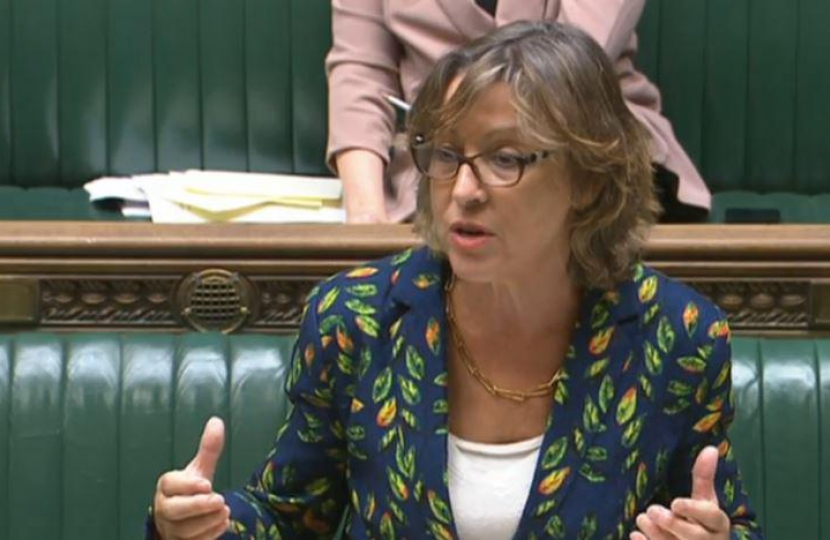
With the passing of the Environment Act – which I was proud to steer through Parliament as the Environment Minister – this Government is putting the environment centre stage.
This is an example for the rest of the world to follow. The Act will clean up the country’s air, restore natural habitats and increase nature, reduce waste and make better use of our resources. Crucially, it will halt the decline in species by 2030; helping to reverse the falling population of British species like the hedgehog, red squirrel and water vole. It will also require new developments to create spaces for nature and we will tackle illegal deforestation overseas.
The Act enables us to transition to a more circular economy, incentivising people to recycle more, encouraging businesses to create sustainable packaging, make household recycling easier and we will stop the export of polluting plastic waste to developing countries. These changes will be driven by new legally binding environmental targets, and enforced by a new, independent Office for Environmental Protection which will hold government and public bodies to account on their environmental obligations.
Using the Environment Act we will put nature on the road to recovery; creating more, better, bigger and connected areas of natural habitats, bring people closer to the natural world and deliver wholesale environment improvements. The Act became law during the UK’s hosting of the COP26 summit in Glasgow, when the UK brought the world together to secure ambitious commitments to tackle climate change. It is a huge step for the UK and I am getting on with the job of putting the measures in the Act into practice.
We have already banned the sale of plastic straws, stirrers, and cotton buds, increased the plastic bag charge to 10p and extended it to all retailers and we are also consulting on banning single use plastic cutlery, plates and polystyrene cups and considering banning problematic single use plastics, including wet wipes containing plastic particles, something I want to see ended not leased because of their devastating affect on the oceans.
What our world leading Environment Act does:
- Long-term targets to improve air quality, biodiversity, water, and waste reduction and resource efficiency
- Our target on ambient PM2.5 concentration - the most harmful pollutant to human health
- A target to halt the decline of nature by 2030
- Environmental Improvement Plans, including interim targets
- A cycle of environmental monitoring and reporting
- Environmental Principles embedded in domestic policy making
- Office for Environmental Protection to uphold environmental law
- Effective collaboration between water companies through statutory water management plans
- Drainage and sewerage management planning a statutory duty
- Minimise damage water abstraction may cause on environment
- Modernise the process for modifying water and sewerage company licence conditions
- Require Local Authorities to tackle air quality
- Simplify enforcement within smoke control areas
- Strengthened biodiversity duty
- Biodiversity net gain to ensure developments deliver at least 10% increase in biodiversity
- Local Nature Recovery Strategies to support a Nature Recovery Network
- Duty upon Local Authorities to consult on street tree felling
- Strengthen woodland protection enforcement measures
- Conservation Covenants
- Protected Site Strategies and Species Conservation Strategies to support the design and delivery of strategic approaches to deliver better outcomes for nature
- Prohibit larger UK businesses from using commodities associated with wide-scale deforestation
- Requires regulated businesses to establish a system of due diligence for each regulated commodity used in their supply chain, and report on it. Introduces a due diligence enforcement system
- Extend producer responsibility to make producers pay for 100% of cost of disposal of products, starting with plastic packaging
- A deposit Return Scheme for single use drinks containers
- Charges for single use plastics
- Greater consistency in recycling collections in England
- Electronic waste tracking to monitor waste movements and tackle fly-tipping
- Regulate shipment of hazardous waste
- Tackle waste crime
- Power to introduce new resource efficiency information (labelling on the recyclability and durability of products)